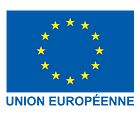






As part of the preparations for the United Nations Conference on Financing for Development (FfD4), scheduled to take place in Seville from June 30 to July 3, 2025, the United Nations hosted the second preparatory committee in New York from December 3 to 6, 2024. On this occasion, Ferdi organized two side events:
The second of these events focused on how to renew the measurement of financing flows for development.
Date and Time: December 4, 11:30 a.m. – 1:00 p.m. (EST)
Location: United Nations, Conference Room B, New York
Organized by: FERDI and the European Union
Faced with the global challenges to challenges that the Sustainable Development Goals (SDGs) aim to address - from eradicating poverty to combating climate change - mobilizing an adequate level of funding is obviously crucial, but so is its allocation between countries. To achieve this dual aim, it is essential to have robust metrics of financial flows, both to guide their allocation ex-ante and to ensure their accountability ex-post.
While the metrics of financial flows for development is relatively well-defined, albeit open to improvement, the metrics for global public goods, particularly climate-related financing, remain controversial and are yet to be fully developed or clarified.
To this end, Total Official Support for Sustainable Development (TOSSD) offers an innovative framework that aims to address the limitations of existing measures, in particular ODA, by broadening the measurement of financial flows to include less concessional public flows, flows resulting from cooperation between countries in the South, international support for global public goods not covered by ODA, and private flows mobilized by public funds.
Although recognized by a growing number of countries, the TOSSD has not yet gained the legitimacy and support of a sufficient number. TOSSD still needs to be developed into a genuine tool for the efficient allocation of public funds for sustainable development, and for donor accountability. In particular, it should enable a clear distinction to be made between funds primarily devoted to development and those dedicated to the promotion of global public goods, notably the mitigation of climate change. This is needed because the rules intended to be applied both to the mobilization and to the allocation of the two categories of flows differ.
Objectives of the panel
After a brief presentation of the current state of progress and the obstacles encountered in measuring and monitoring development financing flows, the panel discussed proposals for the evolution of the TOSSD, and examined how it could better distinguish, in a transparent manner, between financing allocated to the development of recipient countries and that allocated to the promotion of global public goods.
Moderator: Bruno Cabrillac, Executive Director of Ferdi
